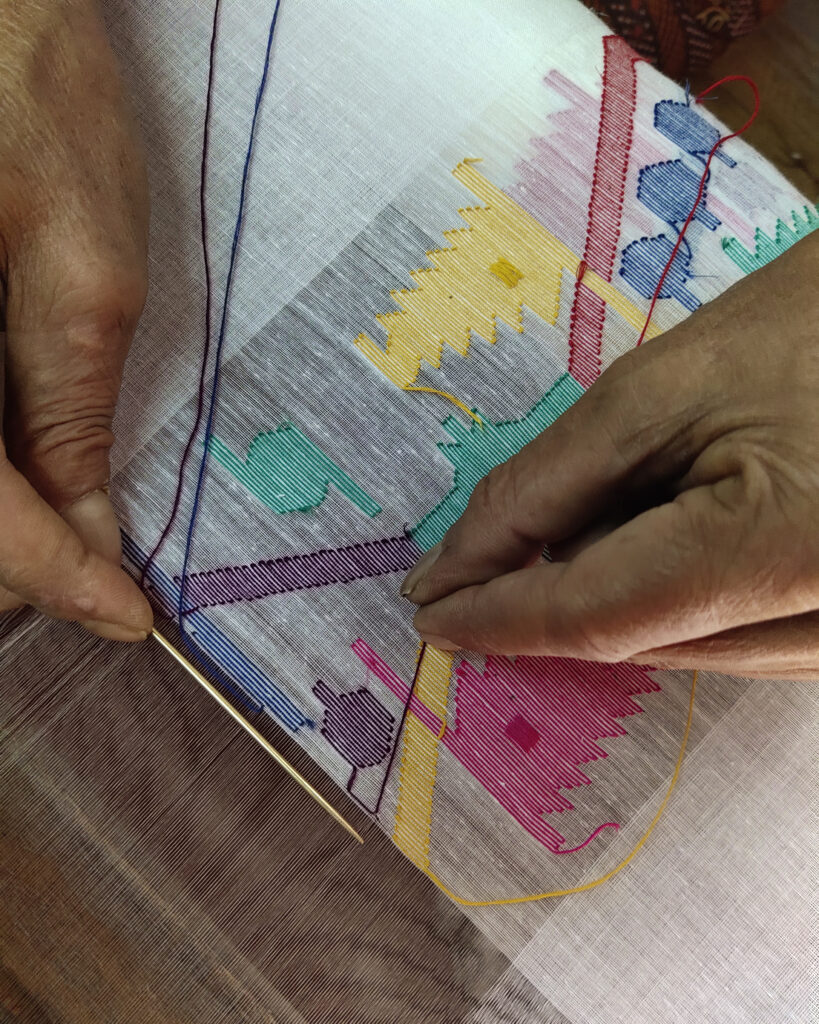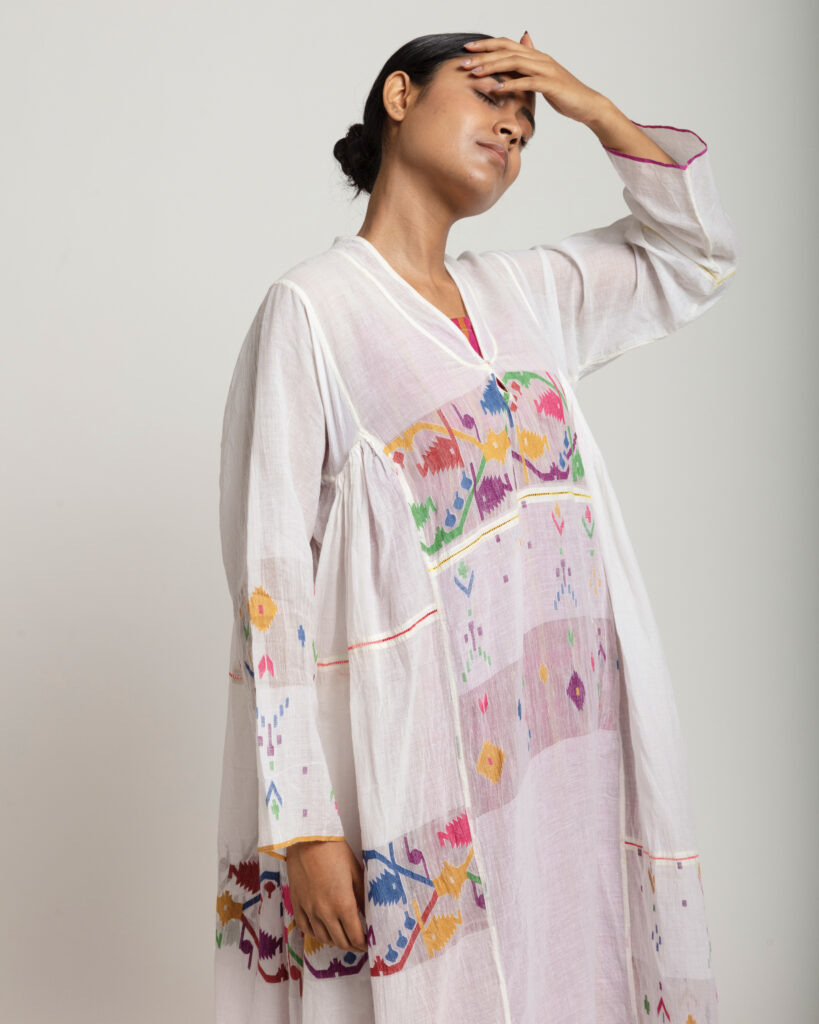
STORIES · 14.06.22
Craft | Mindful Living | Sustainability
Preserving heritage crafts is incredibly important to me, so it is wonderful to be launching another Bamford summer collaboration with Injiri this week. The Jaipur-based clothing and homeware label supports artisans all over India by helping to produce unique garments that have been crafted using a mixture of traditional Indian hand-weaving, embroidery and block printing. The pieces celebrate the skill in the work of the hand and remind us of the need to protect these valuable skills and traditions.
Our Taan Baan collection for SS22 is a colourful celebration of the art of hand-loom weaving. ‘Taan’ is a vocal technique in Indian classical music, and ‘Baan’ is another word for thread. Together the words point to the wonder of the craft – a song and rhythm created while weaving these beautiful pieces.
Injiri was founded by Chinar Farooqui, a textile and clothing designer based in Jaipur. I have known Chinar for many years; we share a similar aesthetic and a passion for Indian handmade textiles, so it was an honour to be interviewed by her while she was in London as part of the promotion for our collaboration and exhibition.

What draws you to Indian textiles?
Their beauty – the colours and feel of the fabrics are unique, intricate and delicate and I am in awe of the work behind their creation. But I also value the sense of heritage and history they carry. Indian handicraft skills are some of the oldest in the world and those traditions and the responsibility to protect them and see them continue is something that moves me when I look at the textiles.
How long is your association with India?
I have been travelling to India for over 40 years. I am captivated by its people, its vibrancy, its crafts and its colours, and the country has been a constant and unwavering source of inspiration for me.
What is the essence of the Injiri and Bamford collaboration?
It is a celebration of the work of the hand. Craftsmanship and the need to support its artisan skills have been at the heart of the Bamford philosophy since we founded the brand, and they are also values that are central to the work and pieces that Injiri create. Our collaboration unites those beliefs. It is an opportunity to showcase our shared love of the extraordinary talents and work of the designers and artisans behind these exquisite Indian crafts.
We would like your views on your most favourite Indian textile technique?
If I have to choose one, it would be block printing. I respect and value that slowness of the process – the time it takes to carve the blocks, the fact that each stamp in the pattern is marked by hand, and the tiny imperfections that arise because of it. You can see the emotion and the skill that has gone into creating the textile and that’s a quality I feel should be cherished.
What is the importance of slow and hand-made in today’s world?
I believe they are vital. Fashion is one of the world’s most polluting industries and the concept of fast fashion is simply not sustainable for the earth. Slowing everything down and creating garments consciously and thoughtfully immediately generates less waste, reduces pollution, uses less energy and ensures that the working conditions for the producers are safe and fair.
